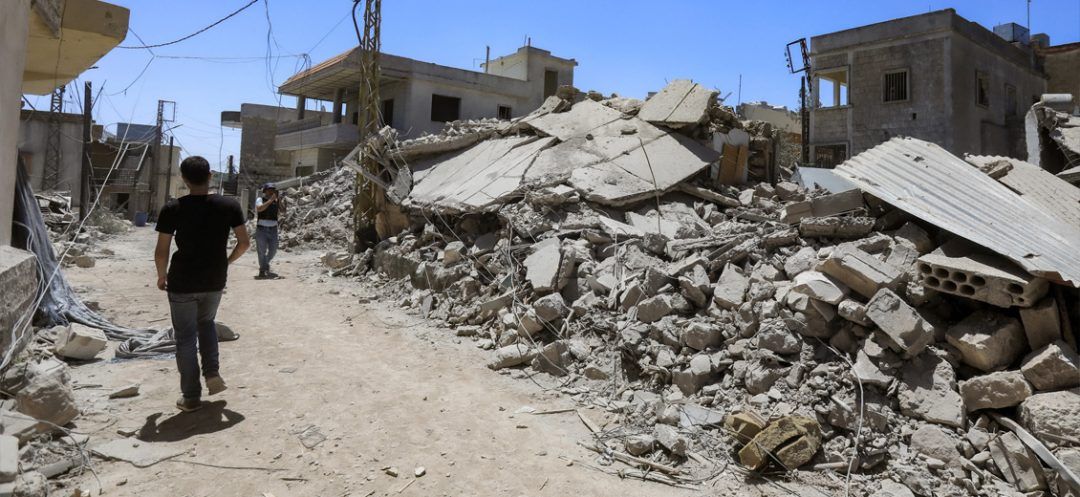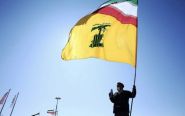
To summarize and provide the proper context for recent developments: On October 8, 2023, following Hamas' deadly attack on Israel, Hezbollah reignited the southern Lebanon front, which had been perfectly calm since August 2006. The stated reason for this unilateral move, taken against the will of a vast majority of the Lebanese people, was to relieve military pressure on Hamas in Gaza. At least, that was the official claim... But the reality is far from that. It’s widely known that Hezbollah’s founding charter (1985) clearly stipulates—as detailed by the party’s “number two,” Sheikh Naim Qassem, in his book on Hezbollah—that all decisions of war and peace are unconditionally entrusted to the Supreme Leader of the Iranian Revolution. Simply put, Hezbollah’s leadership launched “its” war of attrition against Israel on October 8 at the behest of Supreme Leader Ali Khamenei, who was (evidently) advancing the broader (regional) interests of the mullah’s regime.
These facts have been reiterated many times, yet numerous individuals, abroad and within Lebanon, either ignore them or dismiss them without a second thought. The reality is difficult to accept: the suffering endured by the Lebanese population in recent days, along with the war of attrition that the pro-Iranian group has dragged the entire country into for nearly a year, is a direct consequence of Hezbollah's (theocratic) doctrine, which is based on unconditional allegiance to the Iranian Supreme Leader. The Lebanese people are, therefore, sacrificed at the altar of Tehran's greater interests. We are witnessing an extreme case of “divine” alienation—or, more accurately, alienation to a regional power that claims divine legitimacy to tighten its grip on local henchmen. Throughout its history, Lebanon has experienced successive alienations during existential crises, consistently stigmatized by significant portions of the population. The profound resentment toward Hezbollah today and the rejection of its blind strategic alignment with the mullah’s power reflect a widespread sense of frustration against the repeated attempts to subjugate Lebanon. These attempts have persisted since the late 1960s, as evidenced by the various phases of the ongoing Lebanese crisis.
Throughout recent decades, various Middle Eastern powers have sought to manipulate Lebanon and impose their dictates, leveraging the alienation of a segment of the population. For more than half a century, the Lebanese have endured the painful consequences of arrangements rooted in dishonor and expansionist policies, all justified under the misleading pretext of fighting for the Palestinian cause. A prime example of this was the disastrous Cairo Agreement in 1969, which granted Palestinian Fedayeen the right to conduct (fertile) operations against Israel—primarily Katyusha rocket attacks of questionable effectiveness—leading to numerous Israeli retaliatory raids on Lebanese villages. This armed Palestinian fait accompli paved the way for the insatiable ambitions of other regional powers with hidden agendas.
In 1973, President Sleiman Frangieh urged the Lebanese army to put a stop to the repeated violations of national sovereignty by Palestinian organizations. However, he was compelled to backtrack under intense pressure from Syrian President Hafez al-Assad, with whom he had maintained close ties. The excesses of the Fedayeen ultimately led to the outbreak of the Lebanese Civil War in April 1975. This resulted in Syria's occupation of Lebanon, justified under the pretext of protecting Syrian territory from a potential Israeli attack, with Damascus asserting that Lebanon was its “soft underbelly” that needed to be safeguarded. Once again, the Lebanese people became victims of a regional power's ambitions.
In April 1996, Israel launched Operation Grapes of Wrath, which resulted in two weeks of intensive bombings aimed at curtailing Katyusha rocket fire from the pro-Iranian party targeting northern Israel. This operation culminated in a ceasefire agreement negotiated with the Hebrew State (not by the Lebanese government), but by Hezbollah, with the mediation of the United States and France.
In April 2005, the Syrian withdrawal, achieved in part through the Cedar Revolution, did not mark the end of the Lebanese people's trials as they had hoped. Capitalizing on its armed wing, which exhibited a “divine” docility, the mullah regime imposed an unyielding tutelage over Lebanon, viewing it as a crucial asset in its struggle against the West. To solidify its grip and abruptly curtail the sovereign momentum of the March 14 movement, Tehran, through Hezbollah, instigated the devastating war of July 2006, which ultimately led to UN Resolution 1701. Since then, Tehran’s ally has systematically undermined this resolution, culminating in the events of October 8, 2023…
Over more than half a century, aggressive attempts at alienation and domination by belligerent regional powers have fostered widespread frustration and deep resentment toward Hezbollah today. Many activists stress that those advocating solidarity with the pro-Iranian party would have been better served urging it to show solidarity with the Lebanese people by sparing them a destructive war imposed to further Iranian State interests that neither concern them nor reflect their needs.
Read more




Comments